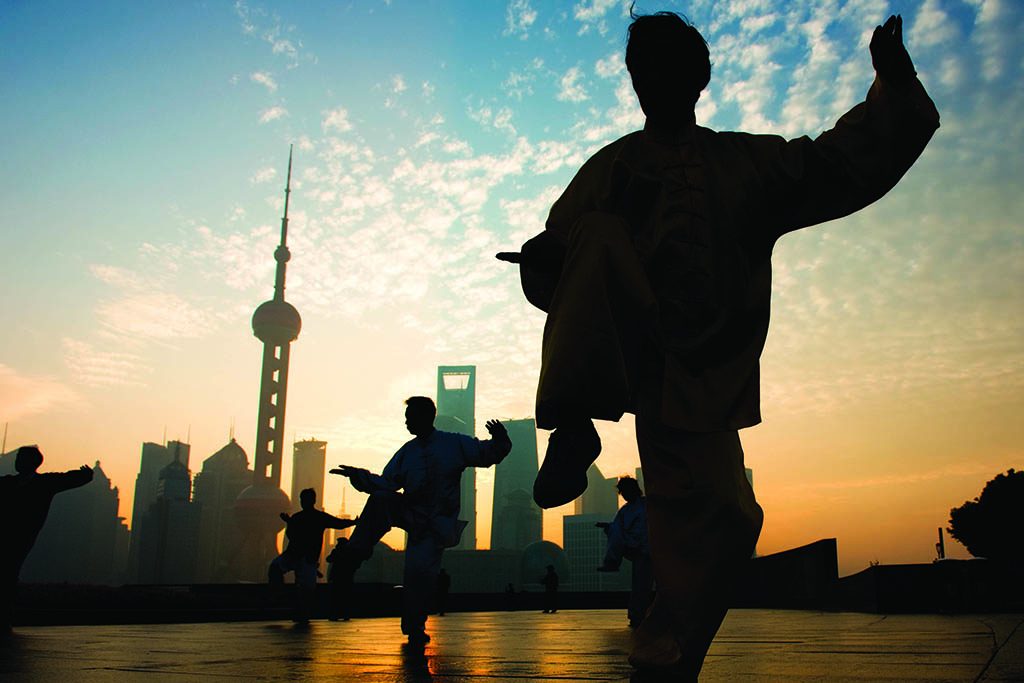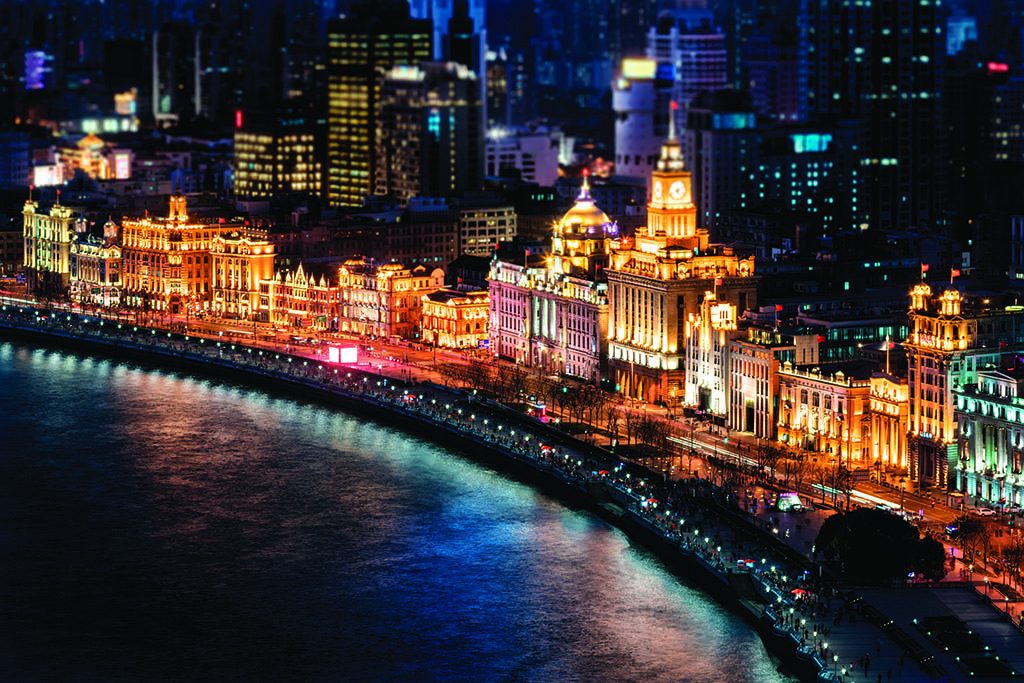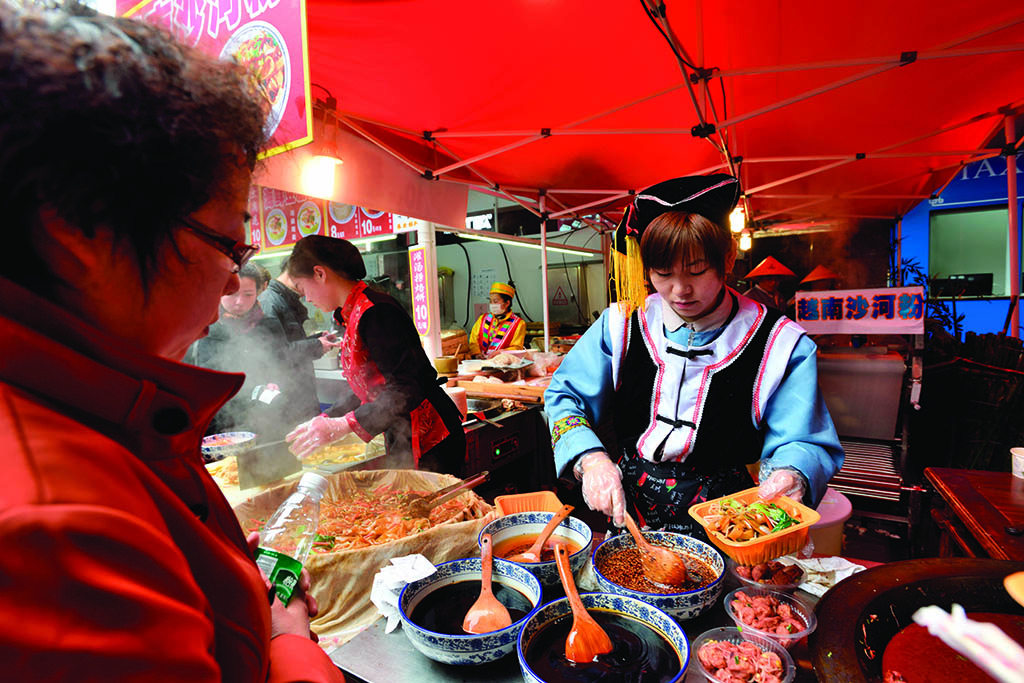SHANGHAI: ART DECO DECADENCE
I’m on the bullet train back to Shanghai, whizzing past the unfolding landscape at speeds up to 186 miles per hour. It parallels China’s economy, which has seen a real annual gross domestic product growth averaging nearly ten percent (through 2014) since its change in foreign trade policies in the late 70s. For perspective, the US’s average rate has
been below two percent over the last decade, but as much as some things change, others stay the same.
China’s LGBT culture, at least by the government’s standards, is a non-issue. Homosexuality was decriminalized in 1997, but there are no anti-discrimination laws in place nor is gay marriage legal. At a quick glance, things look bleak, but there has been some united movement to advocate change. According to a recent post by the Human Rights Campaign, “the only way to achieve marriage equality in China would be to pass legislation in the National People’s Congress, which is not on its agenda at the moment.”
I’m hoping to connect with some locals to find out what gay life is like, and have consulted with Benjamin Law, author of Gaysia: Adventures in the Queer East (Cleiss Press), who spent nearly a year skipping around seven Asian countries, including mainland China. Through our correspondence, Benjamin shared, “From what I understand, awareness is growing. It can’t not, mainly because of how news is disseminated across the world, especially when it comes to LGBTI rights. It’s hard to ignore that same-sex marriage is now legal in the United States, for instance. But in the Chinese context, attitudes toward things really start in the home, and the cultural shift towards accepting homosexuality in the family unit is going to take a long time.”

Shanghai Skyline
At the suggestion of a friend, I download Jack’d, an Asian-friendly app along the lines of Grindr and Scruff. As the train nears the city center (if there is such a thing in a metropolis of 23 million people) my phone buzzes and pings with potential connections, but there is so much to see and do that I temporarily abandon technology to take in a city that makes my hometown of Manhattan look like a quaint village.
I drop off my bags at the exquisite Ritz-Carlton Shanghai, Pudong, which occupies the top 18 floors of the Shanghai ifc South Tower and celebrates a modern interpretation of 1930’s Shanghai Art Deco. My room overlooks the Huangpu River with views of the Bund, but fans of modern architecture might appreciate the building’s other vantage point, which offers an up-close snapshot of the Shanghai Tower. The stylishly fluid skyscraper, nearing completion, will be China’s tallest building at a staggering 2,073 feet.
The hotel has arranged an architecture tour for me with architect, author, and historian Spencer Dodington, an American expat who has been living in Shanghai for more than 20 years. His impeccable language skills help navigate the bustling streets while I’m staring upwards, but what is underneath Shanghai is just as interesting. According to Dodington, Shanghai is a low-lying city built on under- ground plates and rafts, and like New Orleans, subject to a potentially precarious future. A recent report by Climate Central indicated rising sea levels that could see 76 percent of Shanghai region’s current population underwater by 2100 due to global warming. Putting a waterworld future aside, Dodington offers a colorful and informed walk through the various concessions, pointing out many art deco examples, including vertical, horizontal, and Chinese. Favorites include a YWCA build- ing designed by Chinese-American Architect Poy Gum Lee as well as the entertainment district, Xin Tian Di, which fuses old and new while still preserving elements of Shikumen-style construction that was popular during the late 19th century through the 1920s.

Morning Tai Chi in Shanghai
There is so much to see in Shanghai that I’d feel remiss if I didn’t further engage expert assistance, so I’ve plotted out several more excursions with the help of Audley Travel. Founded in 1991 by Craig Burnkinshaw, the company expanded to Asia in 1996 and has been a leader in customized itineraries, earning accolades from Condé Nast Traveler, the Wanderlust Travel Awards, and more. And though I’m traveling solo (and still batting zero on Jack’d), I poked the folks at Audley regarding same-sex couples traveling throughout China.
“Naturally, all same-sex couples carefully consider the welcome they can expect from the destinations they pick for their travels. China is certainly no exception, and Audley Country Specialists, with our highly skilled guides, destination experts, and handpicked hotels and properties, ensure that guests will receive a warm reception and full experience,” said Shane Murphy, Audley Travel China Specialist. “We’ve never had an issue of a lack of acceptance from clients or in our own extensive travels. As a gay man, I also have an appreciation for the finer things in life and a tailor-made trip allows the ability to truly customize your trip and taste level. Ultimately, Audley provides the same level of expertise for everyone regardless of sexual orientation and it’s our priority to ensure each travel- er’s experience goes beyond expectation.”
Shane’s words couldn’t ring more true as I meet up with my city guide, Apple. She’s as sweet as a McIntosh as we wander the city streets, enjoy a traditional Shanghai lunch (I know I’m in the right spot when there’s not a word of English on the menu), and stroll through People’s Park where locals practice tai chi and on the week- ends, participate in the marriage market where parents try to match their children based on everything from income and job status to physical characteristics. To a Westerner like myself, it appears antiquated, but Benjamin reminded me how integrated and complex these issues are in the fabric of Chinese culture, for both the gay as well as the straight community.

The bund, Shanghai
“If you’re closeted to your family, the logistics of maintaining lies (fake marriages, insisting work is keeping you busy, all that stuff) takes its toll. And for the people I know who are openly gay with their family, for most of them, it’s the central source of pain in their relationships with their parents,” shared Benjamin. “Those sorts of pressures are only compounded by the daily realities of living in China: your parents relying on you as their social security, and there is the relative lack of privacy to pursue your own love and sex life. But I think we have to be careful about the idea of calling China’s views on procreation and marriage ‘antiquated.’ That fundamental belief of the family unit as the pillar of society is shared by most traditions and cultures. It’s heightened in China because of both cultural and economic reasons, too.”
Apple passes me along to my driver for the afternoon, Arthur from Authentic Experiences, but this is no standard car tour. Instead, I don a helmet and goggles (looking much like Snoopy’s World War I Flying Ace alter ego) and climb into the sidecar of a vintage Chang Jiang 750 motorbike. Originally produced for the Chinese army in the early 50s, the bike whisks us along to various vantage points likely unseen by most tourists. Arthur has a keen eye for Shanghai’s underbelly as we weave through the city streets and parks before exploring some of Old Town on foot. Overflowing with shanties, free-running dogs, and locals hawking cheaply made clothing from their doorsteps, it’s a stark snap-shot of China’s income inequality.
We then drive to 1933, an old slaughterhouse in the American concession district. The sturdy concrete building features a maze of ramps, staircases, and bridges that surround a center atrium, all originally designed to herd and slaughter cattle. The building was renovated in 2008 and now hosts a number of creative businesses, retailers, and special event spaces. The sun is beginning to set but before Arthur drops me off, we make one more stop at Waibaidu Bridge, where dozens of couples are posing against the Pudong skyline for their wedding photos. China’s wedding industry brings in a staggering $80 billion in annual revenue, and it’s easy to see why with the crews on hand for these customized photo shoots. It’s a sea of women in traditional red gowns, while battalions of brides-to-be stand on the sidelines waiting for their turn in the spotlight and the chance to capture an elusive Shanghai sunset.


